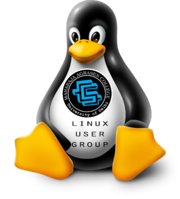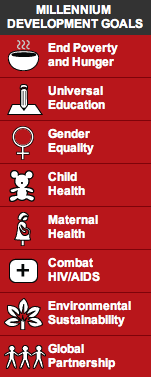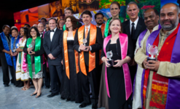CIS 2: Computers and Society: Final Project, Group F
CIS 2: Computers and Society
Final Project, Group F
Jezebel Nguyen & Nhung Nguyen
Contents
- 1 Best Resources
- 1.1 Introductions
- 1.2 Privacy and Freedom of Speech
- 1.3 Intellectual Property
- 1.4 Crime
- 1.5 Employment, Education, and Entertainment
- 1.6 Millennium Development Goals
- 1.7 Evaluating and Controlling Technology
- 1.8 Risks, Failures and Responsibilities
- 1.9 Anytime, Anywhere
- 1.10 Technology Advances, Social Trends
- 2 Jezebel Nguyen
- 2.1 Introductions
- 2.2 Privacy and Freedom of Speech
- 2.3 Intellectual Property
- 2.4 Crime
- 2.5 Employment, Education, and Entertainment
- 2.6 Millennium Development Goals
- 2.7 Evaluating and Controlling Technology
- 2.8 Risks, Failures and Responsibilities
- 2.9 Anytime, Anywhere
- 2.10 Technology Advances, Social Trends
- 3 Nhung Nguyen
- 3.1 Introductions
- 3.2 Privacy and Freedom of Speech
- 3.3 Intellectual Property
- 3.4 Crime
- 3.5 Employment, Education, and Entertainment
- 3.6 Millennium Development Goals
- 3.7 Evaluating and Controlling Technology
- 3.8 Risks, Failures and Responsibilities
- 3.9 Anytime, Anywhere
- 3.10 Technology Advances, Social Trends
Best Resources
Introductions
- Impact of Computer on Society (via Sarah Vais in the "Computers and Society Websites" discussion)
- Are social networking sites good for our society? (via Jung Lee in the "Computer and Society Websites" discussion)
WHY: Both are reoccurring themes that are discussed throughout the quarter
Privacy and Freedom of Speech
- National Coalition Against Censorship (NCAC) (via Jules Bledsoe in the "Privacy and Freedom of Speech keywords" discussion)
- What to do if identity theft happen? (via selected media)
WHY: Both discusses the core concepts of privacy and freedom of speech
Intellectual Property
- Plagiarism Policy (via selected media)
- What is copyright? (via Jung Lee in the "Intellectual Property keywords"discussion)
WHY: Both [copyright links] provide the foundation of understanding intellectual property
Crime
- Common Internet Fraud Schemes (via selected media)
- Computer System Will Help Crime-Solving (via Kari Watanabe in the "Computer and Crimes" discussion)
WHY: While one discusses how technology aids crimes, the other one discusses how technology can prevent them
Employment, Education, and Entertainment
WHY: Both videos discuss how technology is affecting current and future technology, education, and society
Millennium Development Goals
- Millennium Development Goals (MDGs) (via selected media)
- HIV Screening (via John Tang in the "Combat HIV/AIDS, Malaria and Other Diseases" discussion)
WHY: While one link discusses the United Nation's MDGs purpose and goals, the other is an actual organization that is trying to reach one of the MDGs.
Evaluating and Controlling Technology
- Control System (via selected resources)
- Backup (via Moe Thuzar in the "Evaluating and Controlling Technology keywords" discussion)
WHY: Both links discuss core concepts about controlling technology.
Risks, Failures and Responsibilities
- The Unanticipated Consequences of Technology (via Jules Bledsoe in the "Risks, Failures, and Responsibilities keywords" discussion)
- Robot Ethics (via selected media)
WHY: While one link discusses the consequences of technology and its ethical implications, the other provides an example, where one is led to question the ethics of technology.
Anytime, Anywhere
- Anytime Anywhere Learning Foundation (via selected media)
- Cloud Computing 101: The Basics (via selected media)
WHY: Both discuss anytime, anywhere technologies and its effects on society.
Technology Advances, Social Trends
- 32 Innovations That Will Change Your Tomorrow (via selected media)
- Wearable Tech (via selected media)
WHY: Both provide examples of how technology advances can greatly affect society.
Jezebel Nguyen
Introductions
- A Computer Geek's History of the Internet (via assignments)
This timeline is valable to this section as it explores the first keyword (i.e. computers in past society) through the historical trajectory of technology. - A Day in the Life of Social Media (via Romel Tomasian in the "Computers and Society Websites" discussion)
I chose this youtube video as it answers what most of my peers have been asking this entire quarter--how has social media affected society today and just how powerful is it? - Did You Know 4.0 (via Soohyun Kim in the "Computers and Society Websites" discussion)
As this video is an update of an older one, one can trace how technology is always shifting and changing society, a main theme that the class explored throughout this whole quarter. - Impact of Computer on Society (via Sarah Vais in the "Computers and Society Websites" discussion)
This article examines both the pros and cons of computers and their impact on society, again something that is regularly discussed in class. - Importance of Computers in Medicine (via Tammy Nguyen in the "Computers and Society Websites" discussion)
Although I have always thought about how technology has affected medicine, I never once thought about its relationship with computers specifically. This article was refreshing as it brought to light a few things I have never wondered or have taken for granted.
Privacy and Freedom of Speech
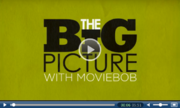
- Behind Facebook—A New World Order Agenda? (via selected media)
As Facebook is the world's most popular social networking site, I find this article to be of utmost importance to its users. Additionally, it should be noted that although I did know of the dangers before, reading this and similar texts [again] have finally helped me to delete mine. - Internet Social Networking Risks (via Tarina Garrett in the "Privacy and Freedom of Speech keywords" discussion)
I do not know much about hacking so I found this link to be informative about different forms of hacking. - Federal Trade Commision's Identity Theft Site (via selected media)
As someone who fears being a victim of identity theft, I found this resource useful as it explains what to do if it were to occur, something I had not thought of researching. - National Coalition Against Censorship (NCAC) (via Jules Bledsoe in the "Privacy and Freedom of Speech keywords" discussion)
The NCAC's site has all the information one needs if they want to learn about censorship both online and offline. - Offensive speech, psychology and the First Amendment (via John Tang in the "Privacy and Freedom of Speech keywords" discussion)
This article discusses the relationship between freedom of speech and offensive speech, something that is rarely talked about in everyday discussion.
Intellectual Property
- 10 Big Myths about copyright explained (via selected media)
This article is informative as it debunks common misconceptions about copyright. - A Shared Culture (via "Intellectual Property keywords" discussion)
This brief video explains what Creative Commons is. - I Never Owned Any Music To Begin With
Although this article was only written in June, it has produced hundreds of comments as well as blog responses, which are interesting to read as they discuss the justifications and cons of music sharing and piracy. - U.S. Copyright Office - Fair Use (via Kasim Azhar in the "Intellectual Property keywords" discussion)
This government site give examples for fair use, as well as define it. - What is the DMCA? (via "Intellectual Property keywords" discussion)
This informative video explains the Digital Milennium Copyright Act is.
Crime
- Common Internet Fraud Schemes (via selected media)
These site is of utmost of importance to anybody who uses the internet as it provides them with tips how to avoid the most common scams on the internet. - Cyber Crime Black Market Almost as Big as Illegal Drugs Industry Now (via Karrie Liu in the "Computers and Crime" discussion)
This article discusses how cyber crime is more prevalent than physical crime, a fact that most people seem to ignore. - Frequently Used Cyber Crimes (via Moe Thuzar in the "Computers and Crime" discussion)
This article lists and explains more common cyber crimes that are not included in the first link. - Online identity theft up 200% since 2010 (via Michael Fullerin the "Risks Forum" discussion)
This article reveals the prevalence of identity theft on popular sites and suggests that one should regularly change one's password. - Stupid security mistakes: Things you missed while doing the hard stuff (via John Tang in the "Risks Forum" discussion
This article lists simple mistakes many people overlook when securing their information.
Employment, Education, and Entertainment
- Can Free Online Courses Transform the Higher Education Industry? (via Karrie Liu in the "Employment, Education, and Entertainment keywords" discussion)
This article discusses how massive online open courses have allowed for more people to receive degrees and thus, employment. - Education And The Future of Technology (via selected media)
This video reveals the relationship between technology's continuing advancement, education, and employment. - Mobile Learning: A reflective journal on learning all the time, everywhere (via John Tang in the "Employment, Education, and Entertainment keywords" discussion)
This blog has all the resources and latest news for anyone interested in mobile learning. - Open Education Matters: Why is it important to share content? (via selected media)
This video demonstrates how sharing content online allows for better collaboration and learning within education. - That's Edutainment (via Marco Murillo in the "Employment, Education, and Entertainment keywords" discussion)
This article discloses specifics about edutainment's organization and informs readers how to engage children in it.
Millennium Development Goals
- Cloud Learning as Universal Primary Education
This blog argues cloud learning needs to become heteronormatized in order to achieve universal primary education. - How can we spread technology throughout the continent? (via Sarah Vais in the "Achieve Universal Primary Education" discussion)
This slideshow discusses the rate of diffusion of technology in Africa and the possibilities of "advancement" due to such fast rates. - ICTs and the fight against HIV/AIDS pandemic (via Nhung Nguyen in the "Combat HIV/AIDS, Malaria and Other Diseases" discussion)
This website argues that the fight against HIV/AIDS is dependent on mass-accessible technologies, such as the radio, cell phone, TV and internet. - Millennium Development Goals (MDGs) (via selected media)
This is the main site for the MDGs, which tracks the progress of each goal. - Mobile Technology Boosts Water Security for the Poor (via Franco Miranda in the "MDGs and Technology" discussion)
This article discusses "five mobile strategies that are already helping people get better access to water and sanitation."
Evaluating and Controlling Technology
- Artificial Intelligence : Technologies (via Florencio Urquidez in the "Evaluating and Controlling Technology keywords" discussion)
This page catalogues common technologies that are seen in the field of Artifical Intelligence. - Computer Security Authentication (via Jeffrey Kong in the "Evaluating and Controlling Technology keywords" discussion)
This page defines computer security authentication before briefly listing a few examples. - Control System (via selected resources)
This wikipage defines controls system before listing the kinds that exist. - Language still key in knowledge sharing (via Lydia Case in the "Evaluating and Controlling Technology keywords" discussion)
This video discusses a knowledge sharing project that focuses on domesticating local languages in order to make resources and education more accessible. - The Digital Divide: A Resource List (via Soohyun Kim in the "Evaluating and Controlling Technology keywords" discussion)
The link provides an extensive resource list on the digital divide.
Risks, Failures and Responsibilities
- 2012 Computer Reliability Report (via Jianqi Wang in the "Risks, Failures, and Responsibilities keywords" discussion)
These are the results for RESCUECOM’s Annual 2012 Computer Reliability Report, which rates the physical reliability of computers. - Internet Safety for Kids K-3 (via "Risks, Failures, and Responsibilities keywords" discussion)
This cute video is aimed at young children to teach them about internet safety. - The Unanticipated Consequences of Technology (via Jules Bledsoe in the "Risks, Failures, and Responsibilities keywords" discussion)
This article discusses the consequences of technology and its ethical implications. - The Unexpected Physical Consequences Of Technology (via "Risks, Failures, and Responsibilities keywords" discussion)
This video briefly touches on the fact of how spending time at your computer can cause chronic back pain. - Untitled (via Jeffrey Kong in the "Risks, Failures, and Responsibilities keywords" discussion)
This article discusses the relationship between online ethics and professionalism.
Anytime, Anywhere
- A Desk Too Far?: The Case for Remote Working (via selected media)
This article discusses the pros and cons of remote employment. - Anytime Anywhere Learning Foundation (via selected media)
The AALF is an organization that is "transforming learning through universal access to technology." - Here’s How Students of Color Fit Into Higher Ed’s Shifting Ecosystem (via The Trouble With Online Education discussion)
These graphs illustrate the importance of online education to students of color. - Offshoring - Outsourcing To Extreme (via Jeffrey Kong in the "Anytime, Anywhere keywords" discussion)
This article explains the difference between offshoring and outsourcing. - The smartphone effect: 1991 vs 2011 (via "Smartphone" discussion)
This image suggests that smartphones have greatly affected the way society get its information, communicates, and does menial tasks.
Technology Advances, Social Trends
- 32 Innovations That Will Change Your Tomorrow (via selected media)
This article lists 32 upcoming innovations that will transform society. - Games for Change (G4C) (via Karrie Liu in the "Tech Awards with major impact" discussion)
G4C is a an organization that uses edutainment to teach its players about social issues. - New Nano Science Technology 2011 (via Moe Thuzar in the What's new and important? discussion)
This video discusses the potential of nano technology. - Project Glass (via Kasim Azhar in the What's new and important? discussion)
- Oculus Rift - is VR gaming finally coming of age? (via What's new and important? discussion)
This article introduces a headset that will change gaming forever as it allows players to experience virtual reality.
Nhung Nguyen
Introductions

- Henry Markram: A brain in a supercomputer (via Jules Bledsoe in the "Computers and Society Websites" discussion)
Scientist will be able to disect the brain apart and figure out in precise detail what is wrong with the brain on the supercomputer - Are social networking sites good for our society? (via Jung Lee in the "Computer and Society Websites" discussion)
This sparks my interests almost immediately because almost everyone uses some form of social networking, such as, facebook, twitter, email, etc. We don't really think much of it, but this website gives us a new aspect to think about. - What type of learner are you? (via Choices in "Vark Learning Style")
This quiz is a great way to figure out what type of learning methods is best for you. I choose this because if you know which learning styles is more suitable for you, then learning will be a lot more easier - The Truth about Social Networking, Facebook, Twitter (via Eilbron Khoshabeh in the "Computer and Society Websites" discussion)
This video is short but entertaining. It's talks about how social networking changed the way we communicate - Google's Effects on Memory (via Karrie Liu in the "Computer and Society Websites" discussion)
It's interesting how by using computers to do research we locate the information externally instead of internally
Privacy and Freedom of Speech

- What to do if identity theft happen? (via selected media)
Giving out our personal information online can be really risky but sometimes we don't think of it. Knowing what to do in case it happens is really important. - Facebook: The Privatization of our Privates and Life in the Company Town (via selected media)
There was quite stirred in the issue of Facebook and their Private settings. People makes such a big deal about it, they can just simply not use it. - History of Spam (via Jung Lee in the "Privacy and Freedom of Speech keywords" discussion)
Spam is something that is really hard to avoid. I've always wondered how spam started. - Censorship makes no sense (via Marco Murillo in the "Privacy and Freedom of Speech keywords" discussion)
I choose this because I feel that censorship is definitely important especially for children. - Credit cards tweets (via Soohyun Kim in the "Privacy and Freedom of Speech keywords" discussion)
This is a good tip for everyone. Do not post up your credit card picture. I've known friends that does this and it is extremely risky.
Intellectual Property

- Plagiarism Policy (via selected media)
Plagiarism is something that is taken really seriously. It's never a bad idea to go through the policy. - Opensource (via Jules Bledsoe in the Intellectual Property keywords discussion)
Open source is a development method for software that harnesses the power of distributed peer review and transparency of process. - What is copyright? (via Jung Lee in the Intellectual Property keywords discussion)
This gives the definition of copyright - Google's new privacy policy: 6 key issues you need to know (via Moe Thuzar in the Intellectual Property keywords discussion)
This article is about how Google collect personal information. - PIRACY BAD (via Marco Murillo in the Intellectual Property keywords discussion)
This video defines and shows a person using a computer to illegally download music.
Crime
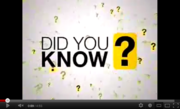
- Future of Technology (via selected media)
This video shows how rapidly technology is growing. - How to know if your computer is infected
This is a piece of information. It's basically an instruction how to identify and fix your computer if it's infected. - World Association for Children and Parents (via Jung Lee in the Online Community Service discussion)
It is amazing how with technology and internet, we are able to adopt and provide community service online. This website is one of the largest and most experienced international nonprofit adoption and child assistance agencies in the United States. - Computer System Will Help Crime-Solving (via Kari Watanabe in the Computer and Crimes discussion)
Technology can be used to solved crime. This new system will allow them to do things in three hours that others do in three weeks - Teenage girl posts picture of cash on Facebook, family robbed (via Angel Avila in the Risks Forum discussion)
This story demonstrates how risky it is to post certain pictures on the internet. It can lead to serious consequences, and in this case, robbery.
Employment, Education, and Entertainment

- Open Education Matters: Why is it important to share content? (via selected media)
Sharing contents are important because it combine knowledges from people around the world. This is a great video demonstrating why it is important. - WebAIM (via selected media)
This is a fun stimulations to work with. My favorite is Distractability Simulation. You are able to experience the frustrations similar to what someone with certain cognitive disabilities may experience on the Web. - 15 Steps to Cultivate Lifelong Learning (via Lydia Case in the Employment, Education and Entertainment keywords discussion)
This article gives you the 15 basic steps to lifelong learning. It's really helpful. - The Flipped Classroom (via Jules Bledsoe in the Employment, Education and Entertainment keywords discussion)
This website showcases a illustrated explanation of what exactly it means to "Flip" a classroom. - 21 Century Education (via Jonathan Vu in the Employment, Education and Entertainment keywords discussion)
A video giving us an idea of what can be the 21st century education.
Millennium Development Goals
- HIV Screening (via John Tang in the Combat HIV/AIDS, Malaria and Other Diseases discussion)
This website helps provide screenings and tests for people who think they are in danger of having AIDS. - Cancer Treatment (via Marco Murillo in the Combat HIV/AIDS, Malaria and Other Diseases discussion)
This website gives information on how to treat cancer. - UNICEF (via Angel Avila in the Reduce Child Mortality discussion)
This website establish an all encompassing plan that focuses on creating an infrastructure in child mortality. - World Wild Life (via Moe Thuzar in the Ensure Environmental Sustainability discussion)
Their mission is to conserve nature and reduce the most pressing threats to the diversity of life on Earth. - Save the Children (via Tarina Garrett in the Reduce Child Mortality discussion)
helps children who are faced with poverty, hunger, illiteracy, disease HIV/AIDS, and abuse.
Evaluating and Controlling Technology
- Cars That Drive Themselves (via selected media)
A smart machine named Stanley is able to drive itself. - Open textbook (via selected media)
An online textbook offers variety of subjects - Voicethread (via Jezebel Nguyen in the Evaluating and Controlling Technology keywords discussion)
This is a website that allows you to share uploaded images, documents, and videos, where your viewers can comment by using voice. - Backup (via Moe Thuzar in the Evaluating and Controlling Technology keywords discussion)
This is a article about Backup and Redundancy. - Computer Security Authentication via Jeffrey Kong in the Evaluating and Controlling Technology keywords discussion The article discusses all of the major methods of computer authentication
Risks, Failures and Responsibilities
- Discoveries (via selected media)
This website talks about NSF's public investment in science, engineering, education and technology helps to create knowledge and sustain prosperity. - Robot Ethics (via selected media)
A video informing how ethical problems surrounding the use of increasingly autonomous robots in everyday life. - Importance of Computers in Medicine (via Medicine and Computers discussion)
Technology that allows Computer software to used for diagnosis of diseases. - Cancer Detecting Phone App (via Marco Murillo in the Medicine and Computers discussion)
An application that let you detect cancer. - Computer Chip Implants For Human Tracking (via John Tang in the Medicine and Computers discussion)
This article talks about implanting a tracking on humans.
Anytime, Anywhere
- What I'm Obsessed About (via selected media)
This website tells you what the most common technologies that people are obsessed with. - Cloud Computing 101: The Basics (via selected media)
This gives a basic overview of Cloud. It means the ability to access the Internet anywhere, anytime and being able to use any or all of the data and applications that you want. - smartphones and applications (via Jezebel Nguyen in the Smartphone discussion)
This video shows how smartphones and applications are affecting consumers in high growth markets. - Instagram (via Sarah Vais in the Smartphone discussion)
A photo sharing application that allows you to edit, share, comment, and like the photo. - E-wallet (via Monet Zamaripa in the Anywhere, Anytime discussion)
Passbook will let you scan your iPhone for many services without having to hold paper.
Technology Advances, Social Trends
- Tech Awards (via selected media)
This let us view some of the innovative project that people had worked on - Wearable Tech (via selected media)
I choose this because I can see how tech can be fashionable. - 10 Smarter Enterprise Technologies That Will Have Big Impact in 2011 (via Sarah Vais in the What's new and important? discussion)
Lists 10 type of technologies that will have big impact in 2011. - Brain implant allows paralysed woman to control a robot with her thoughts (via Jonathan Vu in the What's new and important? discussion)
This technology enable disabilities to think about something and then that thought can be translated into commands. - Solar Bag purifies water while you walk (via Angel Avila in the What's new and important? discussion)
Producing a simple and cheap method of purifying water
